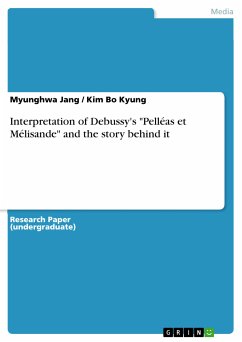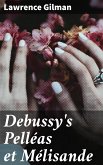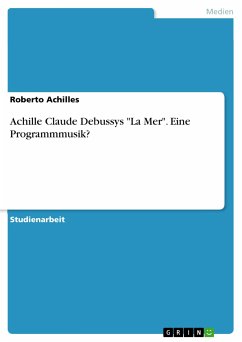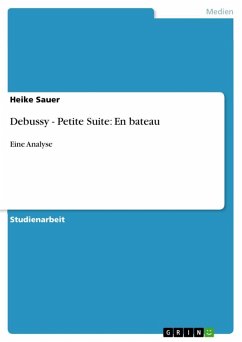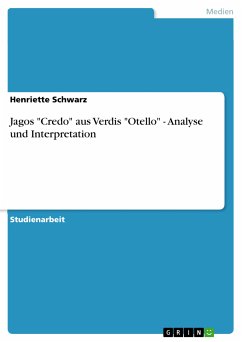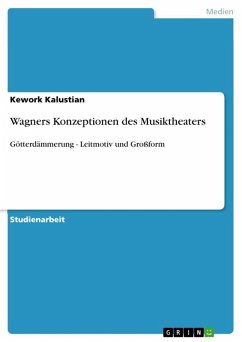Research Paper (undergraduate) from the year 2012 in the subject Musicology - Miscellaneous, The University of Malaya, language: English, abstract: In the world of music, Claude Debussy became the foremost composer of the new musical impressionism. His aim was to express "the inexpressible," in a manner that would ultimately reinvent music drama as "drama in music." Through his only completed opera, Pelléas et Mélisande, Debussy created a new technique designed to "convey the état d'âme of the characters and the maze of unconscious conflicts between them." Debussy chose to set the poetry of Materlinck's drama, Pelléas et Mélisande, possibly because of the importance of nature within the drama, a quality that appealed to both artists' impressionist in expressing the changing aspects of nature, especially of light. Debussy began composition on the work in August 1893, starting with the climactic love scene in the fourth act. Throughout the process of composition, Debussy worked to create a new original technique away from the prevailing contemporary German and Italian style, although he found it difficult to fight the influence of Wagner. The general subdued character of Debussy's score is evident due to its subtlety, restraint, and understatement, resulting from his radically revised approach to text-setting and employment of the orchestra. The use of aria and recitative in their conventional forms is abandoned. Debussy's vocal line carries the text in long, soft declamation that sets one syllable to one note.
Dieser Download kann aus rechtlichen Gründen nur mit Rechnungsadresse in A, B, BG, CY, CZ, D, DK, EW, E, FIN, F, GR, HR, H, IRL, I, LT, L, LR, M, NL, PL, P, R, S, SLO, SK ausgeliefert werden.
Hinweis: Dieser Artikel kann nur an eine deutsche Lieferadresse ausgeliefert werden.

